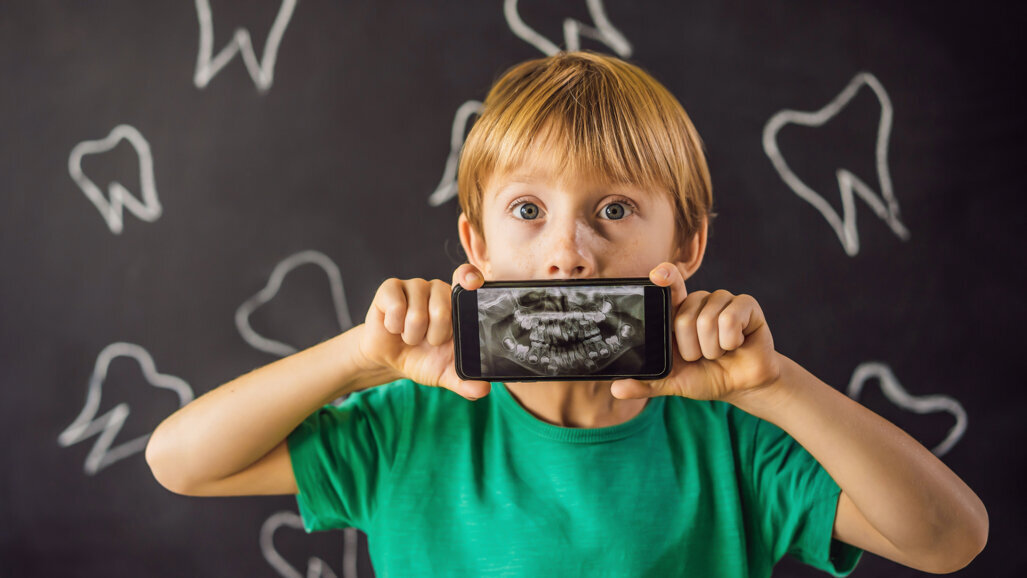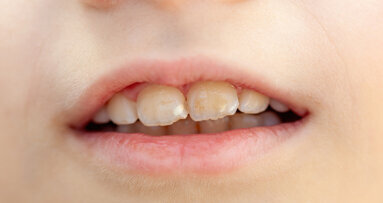HONG KONG: According to the Global Burden of Disease study, early childhood caries affects approximately 530 million children around the world, making it one of the most prevalent chronic childhood diseases globally. In an attempt to mitigate this public health concern, a collaborative research team from various institutions in China has developed a revolutionary artificial intelligence (AI) model capable of detecting subtle microbial shifts that indicate the development of caries in specific teeth long before it becomes clinically evident. The implications for patient health and treatment are thus substantial.
Over an 11-month period, the team tracked changes in plaque microbiota in 89 preschool children and in this manner established a microbial map of the primary dentition—constituting a unique research contribution. As reported in the study, normally an individual exhibits a stable pattern of microbe distribution between the anterior and posterior maxillary teeth, each region harbouring its own unique communities. Of vital importance is that this structured distribution of microbes throughout the mouth is disrupted once caries begins to develop. Microbes associated with the incisal region migrate to the molar region and vice versa.
The researchers developed a highly utile AI platform on these spatial microbial indicators of caries and using it were able to detect these specific bacterial shifts occurring on individual teeth well in advance of any caries becoming visible. The end result is essentially an early microbial risk indicator for each tooth in the mouth.
The model is highly accurate. By integrating the data on a tooth’s unique microbial profile with that of adjacent teeth, the platform achieved 98% accuracy in detecting existing caries and 93% accuracy in predicting caries two months before it became clinically apparent.
Speaking in a university press release on this pioneering development, co-author Dr Shi Huang, assistant professor in the Division of Applied Oral Sciences and Community Dental Care at the Faculty of Dentistry of the University of Hong Kong, commented: “These findings fundamentally change how we understand tooth decay.” Dr Huang explained: “We’ve moved from seeing cavities as inevitable to being able to predict and prevent them at the microbial level, tooth by tooth.”
The clinical significance of the research is undoubtedly enormous, and the model if widely adopted could revolutionise how early childhood caries is treated. The AI platform amounts to nothing less than a powerful advance warning system for the development of caries in children, using these minute microbial shifts as precise indicators of future caries, infection, pain and overall health. If employed, the platform will thus be capable of greatly improving the oral health and well-being of young children, making it especially valuable.
The study, titled “Single-tooth resolved, whole-mouth prediction of early childhood caries via spatiotemporal variations of plaque microbiota”, was published online on 11 June 2025 in Cell Host and Microbe.
Topics:
Tags:
COPENHAGEN, Denmark: Traumatic dental injuries to the primary dentition, particularly luxation events such as intrusion, avulsion, lateral luxation and ...
BOSTON, US: Among the countless controversial aspects of Donald Trump’s current tenure as the US president, the commitment by Secretary of Health and ...
LONDON, England: The commercial baby food industry powerfully shapes early childhood nutrition in the UK and globally. Despite its trusted image, its ...
LONDON, England: While chewing gum may be considered a somewhat undesirable habit, sugar-free varieties have been proved to be highly beneficial for oral ...
VIENNA, Austria: Molar incisor hypomineralisation (MIH) has a significantly high global prevalence, affecting around 14% of the world’s population, and ...
ALMADA, Portugal: Dental clinicians may be in a position to better support new mothers, according to researchers in Portugal who explored whether there is ...
Live webinar
Tue. 17 February 2026
12:00 pm EST (New York)
Live webinar
Wed. 18 February 2026
9:00 am EST (New York)
Dr. Anna Lella, Ms. Francesca Nava
Live webinar
Wed. 18 February 2026
12:00 pm EST (New York)
Prof. Dr. João Caramês CODE expert, Dr. Robert Gottlander DDS
Live webinar
Mon. 23 February 2026
3:00 am EST (New York)
Ass. Prof. Elizabeth Shick, Dr. Zehra Yonel
Live webinar
Tue. 24 February 2026
1:00 pm EST (New York)
Prof. Dr. Markus B. Hürzeler
Live webinar
Tue. 24 February 2026
3:00 pm EST (New York)
Prof. Dr. Marcel A. Wainwright DDS, PhD
Live webinar
Wed. 25 February 2026
11:00 am EST (New York)
Prof. Dr. Daniel Edelhoff



 Austria / Österreich
Austria / Österreich
 Bosnia and Herzegovina / Босна и Херцеговина
Bosnia and Herzegovina / Босна и Херцеговина
 Bulgaria / България
Bulgaria / България
 Croatia / Hrvatska
Croatia / Hrvatska
 Czech Republic & Slovakia / Česká republika & Slovensko
Czech Republic & Slovakia / Česká republika & Slovensko
 France / France
France / France
 Germany / Deutschland
Germany / Deutschland
 Greece / ΕΛΛΑΔΑ
Greece / ΕΛΛΑΔΑ
 Hungary / Hungary
Hungary / Hungary
 Italy / Italia
Italy / Italia
 Netherlands / Nederland
Netherlands / Nederland
 Nordic / Nordic
Nordic / Nordic
 Poland / Polska
Poland / Polska
 Portugal / Portugal
Portugal / Portugal
 Romania & Moldova / România & Moldova
Romania & Moldova / România & Moldova
 Slovenia / Slovenija
Slovenia / Slovenija
 Serbia & Montenegro / Србија и Црна Гора
Serbia & Montenegro / Србија и Црна Гора
 Spain / España
Spain / España
 Switzerland / Schweiz
Switzerland / Schweiz
 Turkey / Türkiye
Turkey / Türkiye
 UK & Ireland / UK & Ireland
UK & Ireland / UK & Ireland
 International / International
International / International
 Brazil / Brasil
Brazil / Brasil
 Canada / Canada
Canada / Canada
 Latin America / Latinoamérica
Latin America / Latinoamérica
 USA / USA
USA / USA
 China / 中国
China / 中国
 India / भारत गणराज्य
India / भारत गणराज्य
 Pakistan / Pākistān
Pakistan / Pākistān
 Vietnam / Việt Nam
Vietnam / Việt Nam
 Israel / מְדִינַת יִשְׂרָאֵל
Israel / מְדִינַת יִשְׂרָאֵל
 Algeria, Morocco & Tunisia / الجزائر والمغرب وتونس
Algeria, Morocco & Tunisia / الجزائر والمغرب وتونس
 Middle East / Middle East
Middle East / Middle East























































To post a reply please login or register